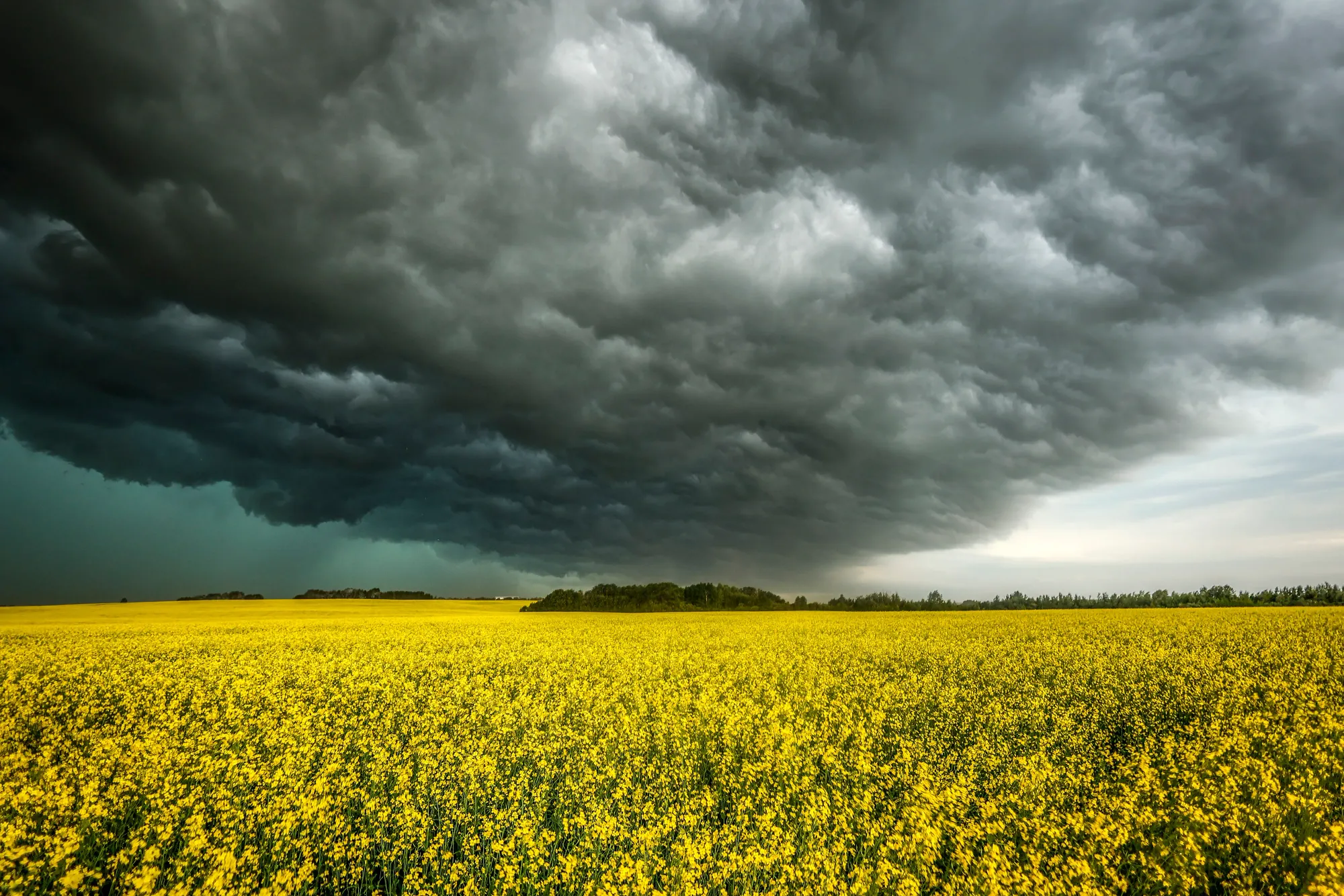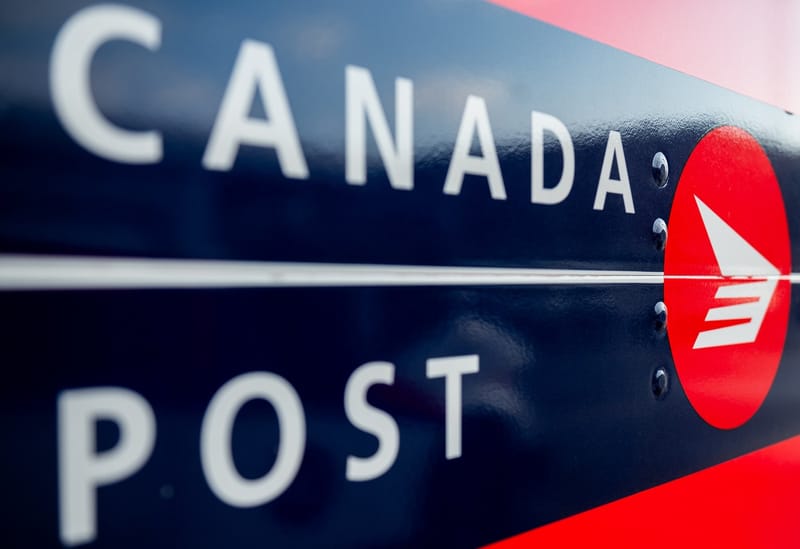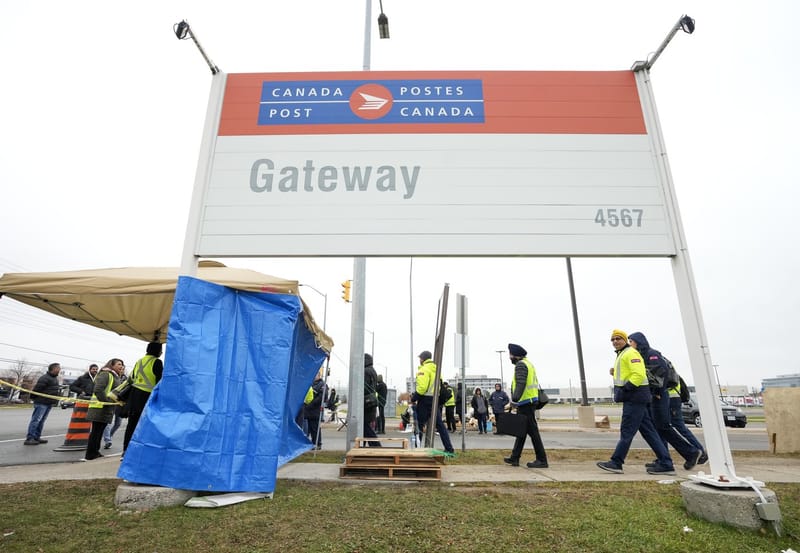Canola farmers say China retaliatory probe ‘one more thing’ to worry about
“A political decision on the other side of the world has a direct impact on our bottom line,” John McKee said from his canola and wheat farm in Stirling, Alta.

Farmers are bracing for the potential fallout from China’s new anti-dumping investigation into Canadian canola imports, adding to an already challenging year marked by economic and environmental hurdles.
China announced the investigation on Tuesday in response to Canada’s plans to impose higher tariffs on Chinese-made electric vehicles, steel, and aluminum. While the federal government argues that these tariffs are necessary to protect Canadian jobs, there is growing concern within the agricultural sector that it may bear the brunt of the repercussions.
"A political decision on the other side of the world has a direct impact on our bottom line," said John McKee, a canola and wheat farmer in Stirling, Alberta, in an interview with Global News. "This is one more thing we’re going to deal with that comes out of left field. That is just a frustration."
The announcement comes as food producers are still recovering from the recent four-day railway shutdown, which severely disrupted Canada’s supply chains late last month. Although CN and CPKC have resumed operations, it could take weeks to restore freight traffic to normal levels, despite federal intervention.
According to the Railway Association of Canada, the two rail companies move a combined $1 billion worth of goods per day, with nearly seven million tonnes of canola transported by rail in 2022, based on the latest Statistics Canada data.
Farmers have already been grappling with rising farmland costs, inflationary pressures on supplies, and persistent droughts affecting output and market prices. While some farms have managed to plant more canola due to climate change delaying the "killing frost," the overall situation remains difficult.
McKee noted that the market price for canola in southern Alberta dropped by nearly a dollar on Tuesday following China’s announcement, a decrease that could cost his operation $100,000 in revenue.
“When that income doesn’t come in, it means we have to massively rethink how we’re moving forward,” he said. “It’s not going to destroy us... But to keep everything running smoothly, you need to operate at a certain level. And just losing that amount of money... well, it’s disheartening.”
Beijing is accusing Canada of undercutting its export prices on canola, a practice known as dumping, to gain an unfair market advantage. This mirrors Canada’s justification for imposing a 100% tariff on Chinese EVs, which Ottawa argues are heavily subsidized and could flood the market, threatening Canada’s nascent EV industry.
China is Canada’s largest market for canola seeds, oil, and meal. The Canola Council of Canada reports that trade with China reached $5 billion in 2023, with three-quarters of Canada’s exported canola seeds going to China between January and June this year.
“China has demonstrated over many years that they value our high-quality canola, and Canada is the largest producer of high-quality canola globally. So I believe we have a shared interest in making this work,” said Chris Davison, president and CEO of the Canola Council of Canada, in a statement to Global News.
Experts had anticipated that China might target a specific agricultural sector in retaliation for Canada’s EV tariffs, and canola has been a prime target in the past. In 2019, Beijing banned canola seed imports from two major Canadian companies, citing concerns about pests in shipments. This ban occurred amid heightened tensions between the two countries following Canada’s detention of Huawei executive Meng Wanzhou and China’s subsequent detention of Canadians Michael Kovrig and Michael Spavor.
Although Canada launched a WTO challenge in 2020, the review panel was suspended in August 2022, three months after China resumed Canadian canola shipments. During the ban, the value of Canadian canola exports fell from $2.8 billion in 2018 to $1.8 billion in 2021. An analysis by the Canola Council estimated that the industry lost up to $2.35 billion between the start of the ban and August 2020.
Davison emphasized that the council’s current priority is ensuring open and predictable market access for Canadian canola moving forward. “We will support (China’s) investigation, as appropriate, to demonstrate what we know is the fair access and competitiveness of Canadian canola,” he said. “I wouldn’t want to speculate on the outcome of an investigation that hasn’t even started yet.”
Saskatchewan’s agriculture and trade ministers have expressed concern about the Chinese probe in a letter to their federal counterparts, noting that the province is Canada’s top canola producer. Agriculture Minister Lawrence MacAulay described China’s move as “deeply concerning” and assured that he is working with government and industry colleagues to closely monitor developments. International Trade Minister Mary Ng issued a similar statement.
At an event in Edmonton, Employment Minister Randy Boissonnault defended the government’s tariffs and assured that Ottawa has measures in place to support farmers. “We have programs inside Agriculture Canada to help farmers that find themselves with a low-commodity price,” he said. “And I know the minister of agriculture will be responding and reaching out to producers.”
These measures include a price pooling program to protect against unexpected market drops and various loan programs.
Back on his Alberta farm, McKee is considering planting less canola, or even none at all, to avoid further financial losses if the price impact persists. However, he remains hopeful that the Canada-China dispute will eventually be resolved.
“I’m sure that it will be resolved,” he said. “It might take six months, but they’ll be back when they need to eat, when they need the food. They will buy it. But right now there’s this political event.”





